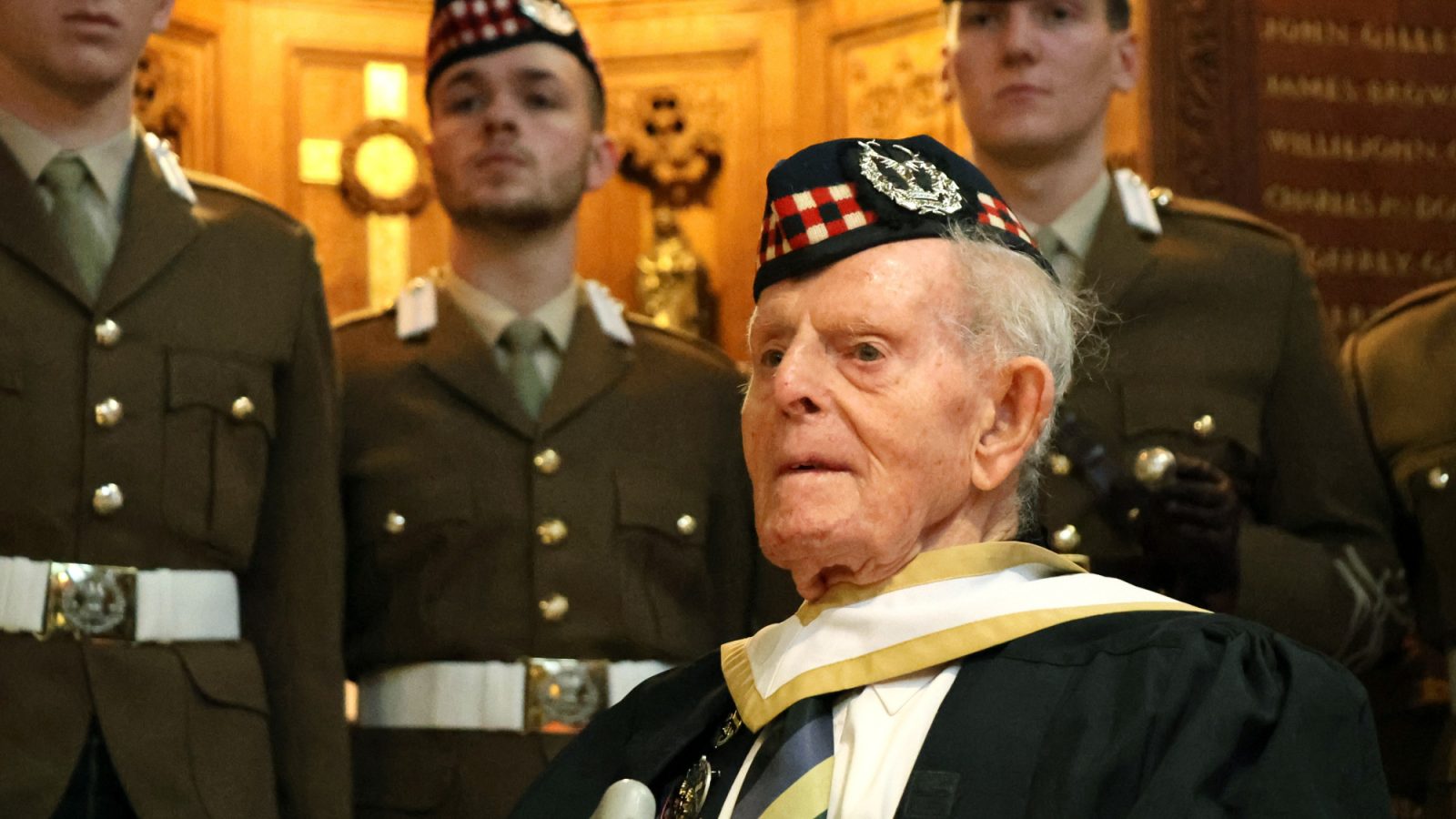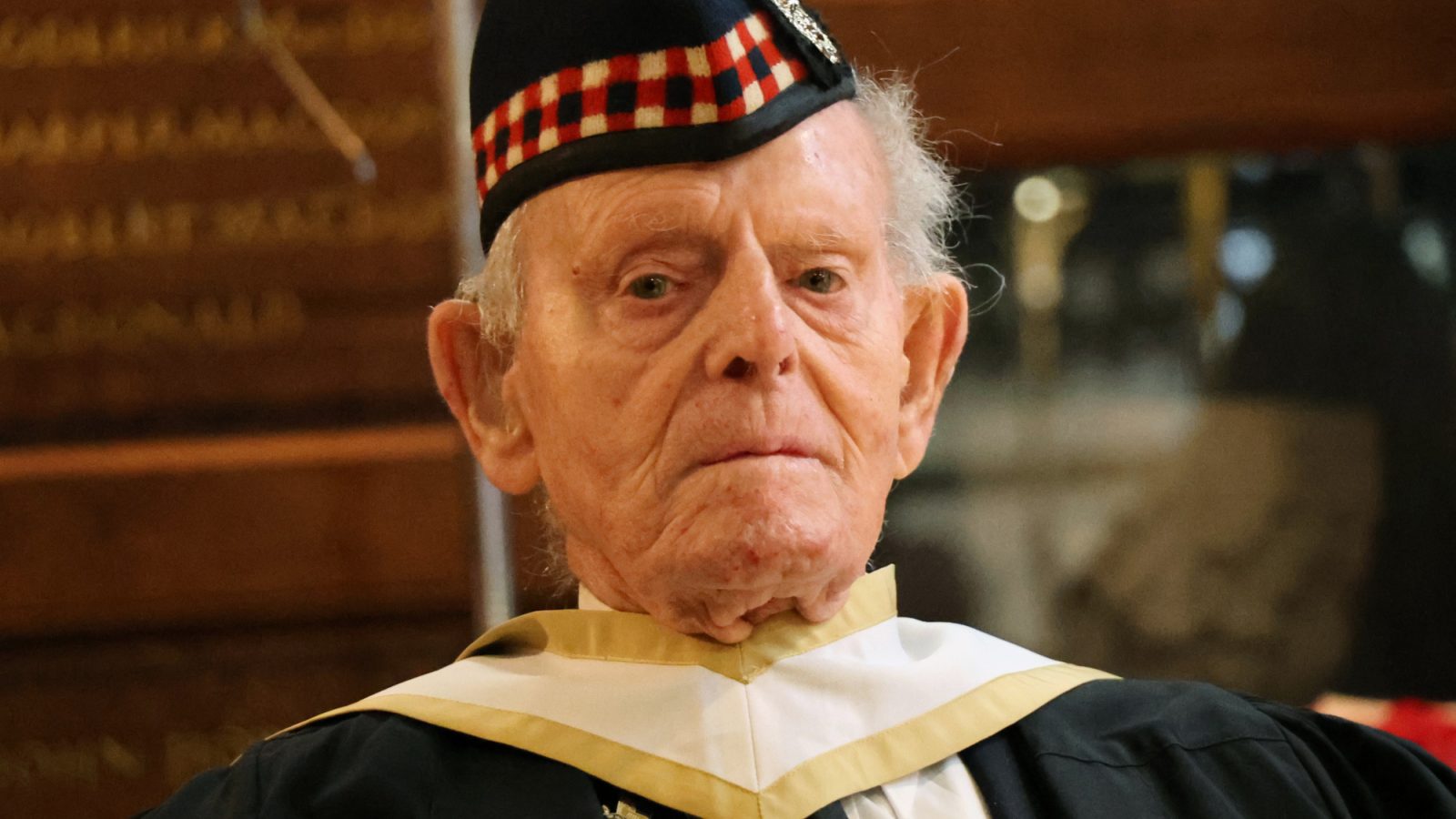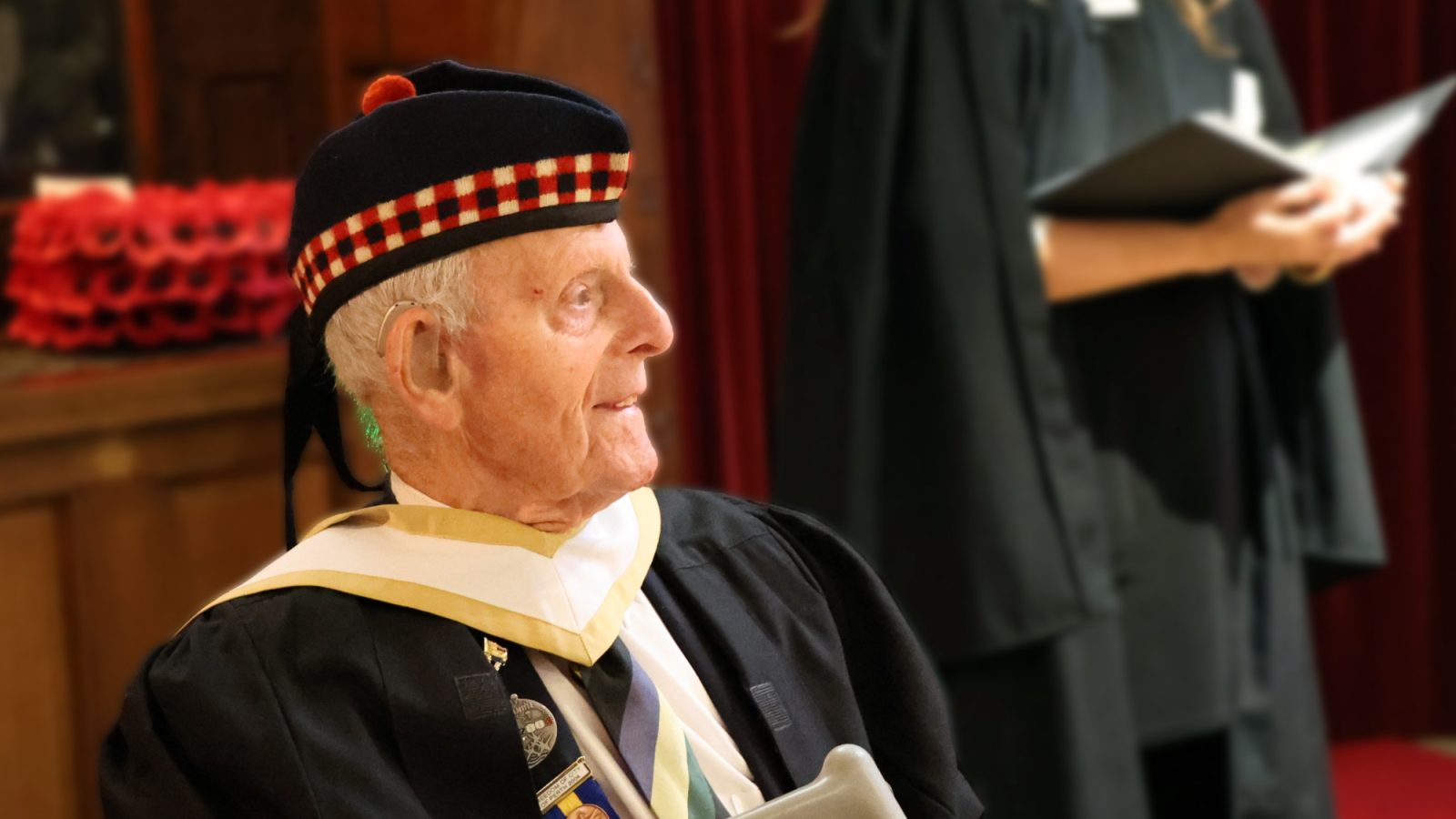The University of Aberdeen has honoured one of Scotland’s last surviving D-Day veterans with an honorary degree.
Jim Glennie, who turned 100 this year, was presented with a Master of the University (MUniv) at a special ceremony today (14 October) at King’s College Chapel.
During the ceremony Mr Glennie laid a wreath at the University's War Memorial to honour the sacrifices made by those who have died in conflict.
To mark the celebrations Her Majesty the Queen and Chancellor of the University of Aberdeen wrote a personal message to Mr Glennie, in recognition of his military service, his support for the Gordon Highlanders Museum and his dedication to educating others about the sacrifices made during the Second World War.
Born in Turriff, Mr Glennie was just 18 years old when he became one of the first Gordon Highlanders to land on Normandy’s beaches in 1944.

After being called up, he enlisted in the army and began his military service at the Bridge of Don Barracks in Aberdeen, before being sent to the front line to take part in Operation Overlord, the largest seaborne invasion in history.
He landed with the battalion at Sword Beach on 6 June 1944. Under intense fire, he helped comrades who couldn’t swim reach the shore. But just two weeks later, after his company was ambushed, he was shot in the arm and shoulder. Following his recovery in hospital, Mr Glennie spent the rest of the war in prisoner of war camp, Stalag IV-B in Germany.
After the end of the war, he returned to Turriff where he became a welder, working both onshore and offshore. He married his wife Winifred in 1953, with whom he had two children.

His connection to his service didn’t end with the Second World War: he has spent more than 30 years volunteering at the Gordon Highlanders Museum in Aberdeen, sharing stories with generations of visitors about his own wartime experiences and raising awareness of the sacrifices made during the war.
Mr Glennie has previously been recognised for his military service: not only was he awarded the Légion d'honneur, France's highest national order of merit, in 2015, but this year he also received a British Empire Medal (BEM) in the King’s New Year Honours.
Mr Glennie’s son, James Glennie, said: “Today has been amazing for dad and the whole family. When we found out he was getting an honorary degree, the surprise was way up there. He doesn’t seem to recognise that people think a lot of him. He’s very down to earth and he doesn’t really think he’s done anything extraordinary. But this is very special.
“He’s a Turriff loon, as he would say, who happened to land where people were trying to shoot him. He lost friends but he managed to last a few weeks before he eventually got shot. He comes from a tough generation.

“Initially, as a child, he didn’t really speak about his experiences. I would see the marks on his arms and ask him about them but he’d just say ‘it’s something that happened in a war’ and he wouldn’t really expand on it.
“But when the Gordon Highlanders Museum opened, he started taking about things and would tell stories about what he went through. He’s got good friends at the museum and he’s the oldest one there now but that has really kept him going.”
Professor Sir Iain Torrance KCVO, Pro-Chancellor of the University, said: “The University of Aberdeen is delighted to present Jim Glennie with an honorary degree. Mr Glennie's heroic actions during the Second World War and his commitment to educating later generations about his own lived experience and the sacrifices of others, embody our values as a University and highlight the importance of Remembrance. It is a privilege to welcome him to our University of Aberdeen family.”